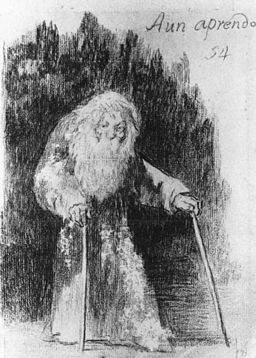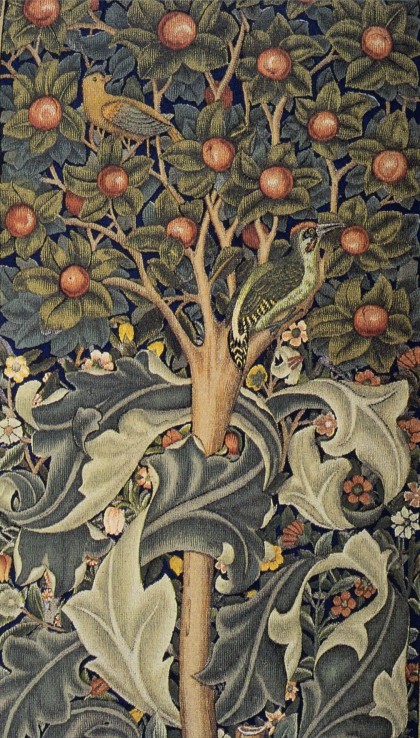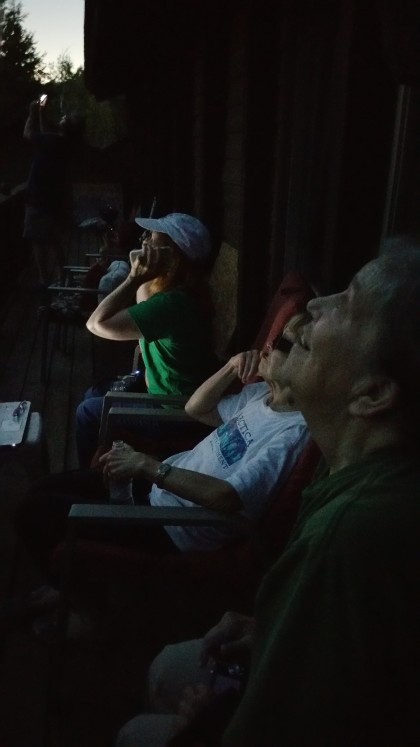Fall Harvest Moon

A couple of months ago I joined a new group at Beth Evergreen, one designed to provide leadership for continuing to integrate mussar (Jewish ethics and an approach to spirituality) into synagogue life. The group’s work involves deepening our own practice of mussar and through that enhancing the practice of others.
In the first month we focused on-hmmm, I don’t recall, which is telling. I felt embarrassed when we got together to discuss our practice because mine had not gone well. The next month, I resolved, would go better. That month, the month of Elul, ended on September 20th, the day before erev Rosh Hashanah, New Year’s eve, or the first of Tishrei. We meet again next next Wednesday.
Mussar identifies soul traits that come from within the Jewish tradition, but have universal application. That is, though mussar is a particularly Jewish approach to ethics, it can have application for anyone. According to Mesillat Yesharim, the medieval text we’ve been studying for the past year plus, these traits develop in a particular seder, or order.
The first trait, according to this book, is watchfulness. The subtle permutations of each soul or character trait get a good deal of attention in Mesillat Yesharim (The way of the righteous) but the first task is to get a grasp of the trait. Watchfulness correlates to mindfulness, to self-awareness, and I relate it most to the Greek know thyself.
 Awe, or hitlamdut* in Hebrew, being a learner, being in a constant state of curiosity/awe, was the middah (soul trait) for last month, Elul. This month, Tishrei begins with Rosh Hashanah, and its tenth day is Yom Kippur, the day of atonement. The period from Rosh Hashanah are collectively the Days of Awe, the High Holy Days in the Jewish liturgical year. Awe is central to the experience of the most sacred days of the Jewish year.
Awe, or hitlamdut* in Hebrew, being a learner, being in a constant state of curiosity/awe, was the middah (soul trait) for last month, Elul. This month, Tishrei begins with Rosh Hashanah, and its tenth day is Yom Kippur, the day of atonement. The period from Rosh Hashanah are collectively the Days of Awe, the High Holy Days in the Jewish liturgical year. Awe is central to the experience of the most sacred days of the Jewish year.
In my mussar practice for the month of Elul, I committed, once again, to journaling and to using a focus phrase. Mine was, Say Awe, a yellow post-it note is on my computer tower. Over the month I have noted moments of awe using Keep, a note-taking app on my smartphone.
The first morning of this new practice I got up at 4:45, fed the dogs as usual, then went outside to walk up the stairs to the loft. On clear nights, most nights here on Shadow Mountain, the starry sky is a wonder all on its own. This night though had something special to kick off my days of awe: Orion had risen. Readers of this blog may recall my special relationship with Orion, one begun on lonely nights in the guard shack where I worked during my senior year of college.
 Orion returns as the Great Wheel turns into fall, the beginning of my favorite half of the year, reaching its high point (low point?) on the Winter Solstice. Each year since 1968 Orion has returned as a friend, a companion during lonely, dark nights. It gladdens my heart to see him since he only visits during this time. His return on this particular night was awe-some. Orion got me started on a month of awe.
Orion returns as the Great Wheel turns into fall, the beginning of my favorite half of the year, reaching its high point (low point?) on the Winter Solstice. Each year since 1968 Orion has returned as a friend, a companion during lonely, dark nights. It gladdens my heart to see him since he only visits during this time. His return on this particular night was awe-some. Orion got me started on a month of awe.
As the month has progressed, I have encountered many moments of awe: realizing the heat on my face had traveled 93 million miles through empty space, being aware that each night I go unconscious, taking myself out of the much more familiar waking world, Black Mountain appearing in the morning as the sun burned off its misty shroud, experiencing sonder-the realization that each person you pass has a rich, full life and that you will never know it. At the dentist’s office for a teeth cleaning, alone in the chair and waiting for the hygienist I went into a revery about light, light bulbs, electricity, the wonder of human invention, the evolution of teeth, the astounding reality that each of us are the current instances of an unbroken line of successful procreation, a line of procreation that began with the very first one-celled organism.
As I followed this practice, this mussar practice, deeper into awe, I discovered I could summon an experience of awe at will. And, that I’d been doing something like this for a long time.
 Here’s an example. Kate and I enjoy eating at the New York Deli, an authentic Jewish deli that happens to be on our route into Jon’s house. We went there a couple of weeks ago and I ordered a white fish platter. It was huge. There was white fish, dollops of cream cheese, capers, tomatoes, onions, lettuce. On the side were two bagels, sesame seed as I had requested. Awe was on my mind so I looked at the platter. This meat came from a white fish that swam in some lake, it’s a freshwater fish, not too long ago. It had to be caught, selected, preserved (probably through refrigeration), processed, packed, stored and shipped. Then it had to be opened, divided and placed on my plate. Imagine all the individual people involved, all the different modes of transportation: boat, truck, maybe rail, maybe airplane. The cream cheese: specific cows were milked, the milk pasteurized (Louis Pasteur), chilled, then sent to a dairy somewhere and used to create the cheese which likewise had to be transported here to end up on the plate. You can see how this goes. The wheat in the bagel: sowen somewhere, cultivated over a growing season, combines in formation harvesting it, more transportation, milling, mixing the flour with eggs and yeast, baking. Growing the sesame seeds. The tomatoes. The onions. The lettuce. Do you see what an amazing, awe-some thing that white fish platter was?
Here’s an example. Kate and I enjoy eating at the New York Deli, an authentic Jewish deli that happens to be on our route into Jon’s house. We went there a couple of weeks ago and I ordered a white fish platter. It was huge. There was white fish, dollops of cream cheese, capers, tomatoes, onions, lettuce. On the side were two bagels, sesame seed as I had requested. Awe was on my mind so I looked at the platter. This meat came from a white fish that swam in some lake, it’s a freshwater fish, not too long ago. It had to be caught, selected, preserved (probably through refrigeration), processed, packed, stored and shipped. Then it had to be opened, divided and placed on my plate. Imagine all the individual people involved, all the different modes of transportation: boat, truck, maybe rail, maybe airplane. The cream cheese: specific cows were milked, the milk pasteurized (Louis Pasteur), chilled, then sent to a dairy somewhere and used to create the cheese which likewise had to be transported here to end up on the plate. You can see how this goes. The wheat in the bagel: sowen somewhere, cultivated over a growing season, combines in formation harvesting it, more transportation, milling, mixing the flour with eggs and yeast, baking. Growing the sesame seeds. The tomatoes. The onions. The lettuce. Do you see what an amazing, awe-some thing that white fish platter was?
My conclusion, right now anyhow, is that awe, far from being an irregular, occasional moment of OMG, is a matter of the perspective we bring to each life moment. If we choose to probe deeper, we can find the awe in the awedinary.
So, as I learned at the dentist’s, say awe.
